Kevin Clarke
Operetta Research Center
23 November, 2025
The world—including the music world—celebrates Johann Strauss II’s 200th birthday in 2025. Exhibitions, new books such as the crime novel Aus für Strauss by Thomas Brezina, and several new productions are stirring interest. Among them are Die Göttin der Vernunft in Hildesheim and Waldmeister at Munich’s Gärtnerplatztheater. A live recording of the latter is now available on cpo, as an alternative to the recent full recording on Naxos conducted by Dario Salvi.

The 2025 “Waldmeister” recording from Munich. (Photo: cpo)
Waldmeister (woodruff) is a charming herb whose (dried) leaves exude an aromatic, enticing scent ranging from hay to lavender. This quality makes it ideal as a spice, though its mild toxicity calls for cautious use. It is also used to make bright green syrup, which in Berlin sweetens the so-called “Weiße mit Schuss.” The herb reaches its pinnacle in the infamous Waldmeister Bowle, a punch that combines its unique flavor with stronger alcohol.
In Strauss’s late operetta Waldmeister (1895), with a libretto by Gustav Davis, woodruff lends its name to a quirky comedy.
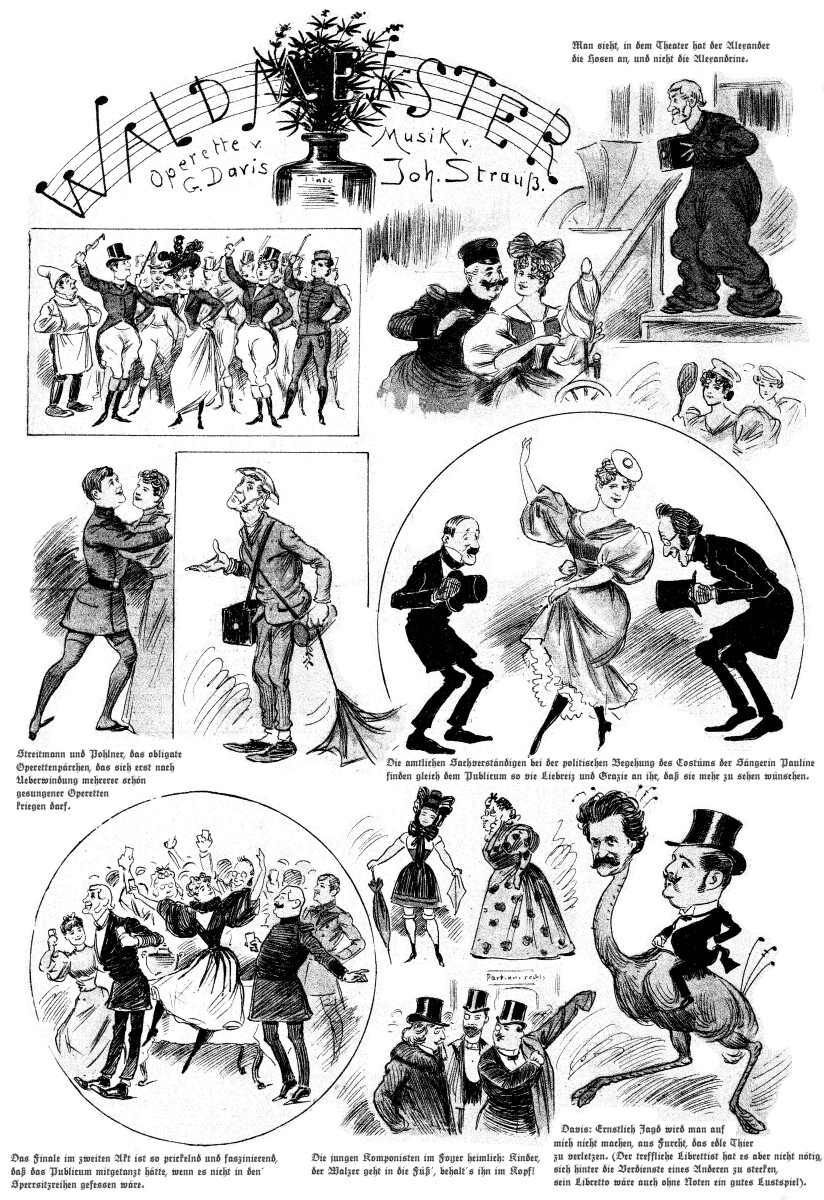
Scenes from “Waldmeister” as seen in a historic cartoon. (Photo: Dario Salvi Collection)
The story takes place in a Saxon provincial town at the “present day” (= the late 19th century). Cast notes of the first performance at Theater an der Wien, such as “singer at the Dresden Opera” or “director of the Forestry Academy,” situate the operetta in the small town of Tharandt near Dresden, home to the Royal Saxon Forestry Academy.
“Too pop-culture-driven”
At the center is a love story that, after the usual twists and misunderstandings typical of operettas, reaches a happy ending. On the way, a “Waldmeister Bowle” plays a crucial role: thanks to the effects of alcohol, the “right” couples eventually find each other. This is hardly groundbreaking. One could, of course, link the “green” of the punch to the current Wicked craze, but that would likely be too pop-culture-driven for director Josef Köpplinger at the Gärtnerplatztheater.
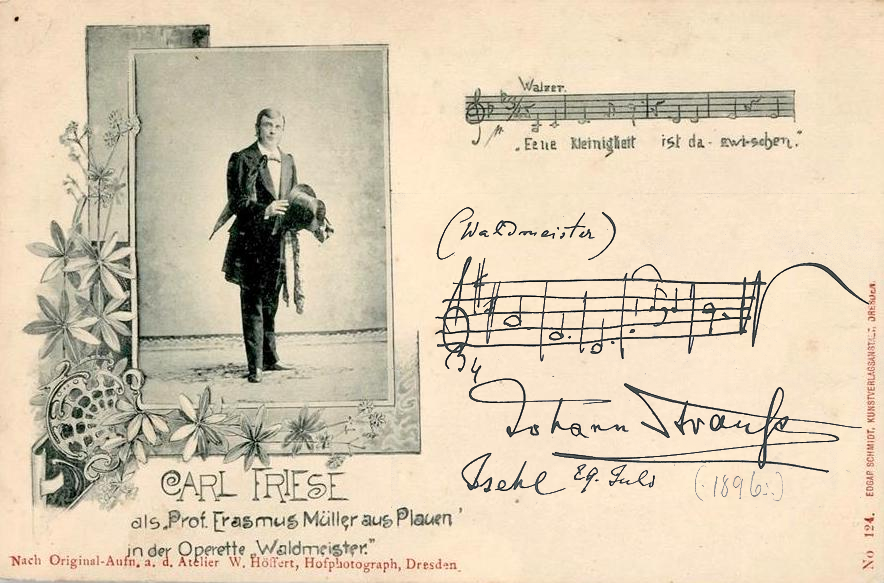
Carl Friese in “Waldmeister” as seen on a postcard from Ischl. (Photo: Dario Salvi Collection)
In his 2025 adaptation of the operetta, the theater’s dramaturg notes in the program not only the historically specific location of Tharandt but also that Alexander Girardi’s wife at the time, Helene Odilon, came from Dresden and that Girardi had “phonetically drilled” his role. The new version, however, relocates the story to an undefined location in the Vienna Woods—a deliberate choice, as the aim is to celebrate Strauss’s “classical” Viennese operetta.
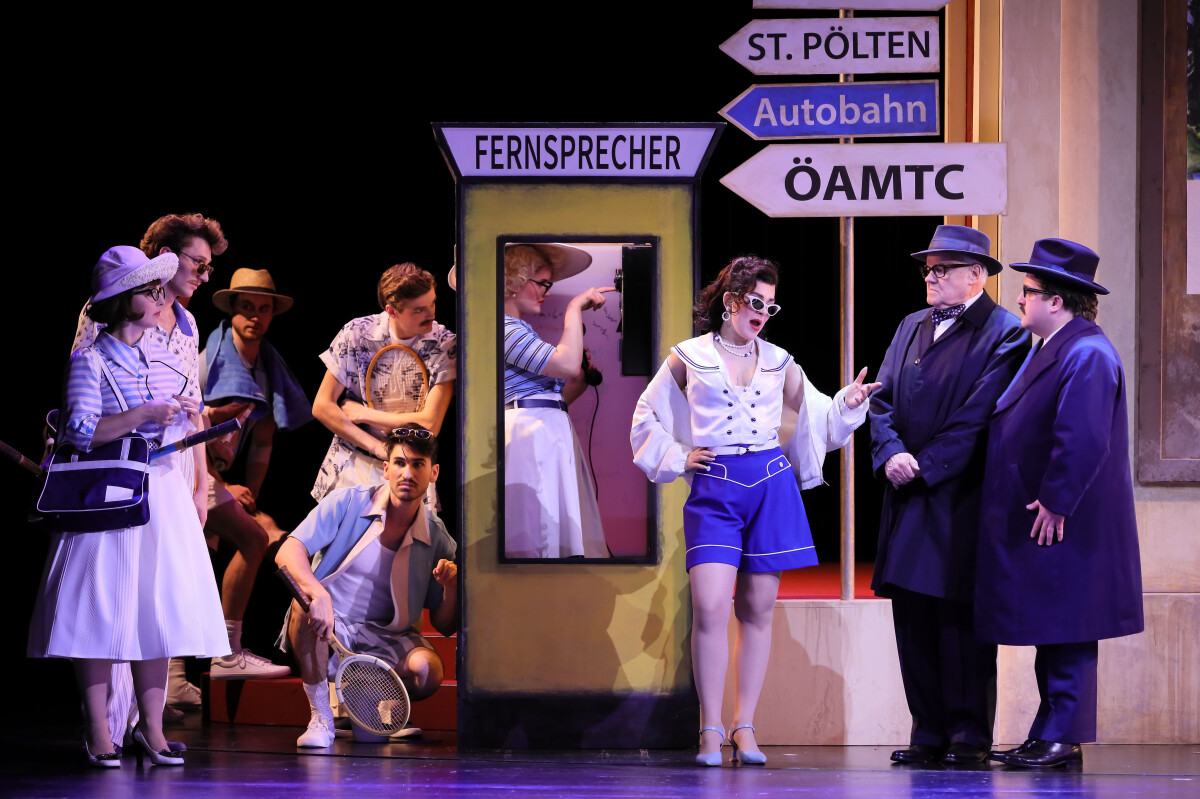
Anna-Katharina Tonauer (Jeanne), Alexander Findewirth (Erich), Riccarda Schönerstedt (Regina), Sophia Keiler (Pauline Garlandt), Robert Meyer (Christof Heffele), and Caspar Krieger (Stadtrat Danner) in “Waldmeister” at Gärtnerplatztheater Munich. (Photo: Marie-Laure Briane)
All the protagonists, entangled in love and other complications, gather in a hotel that is closed for renovations due to a storm: the director of the forestry academy Tymoleon Gerius, the student Botho Wendt, and botany professor Erasmus Friedrich Müller, whose common family name is shared by the absent innkeepers. Pauline, the unpopular singer in town, seizes the innkeeper’s identity for her personal revenge.
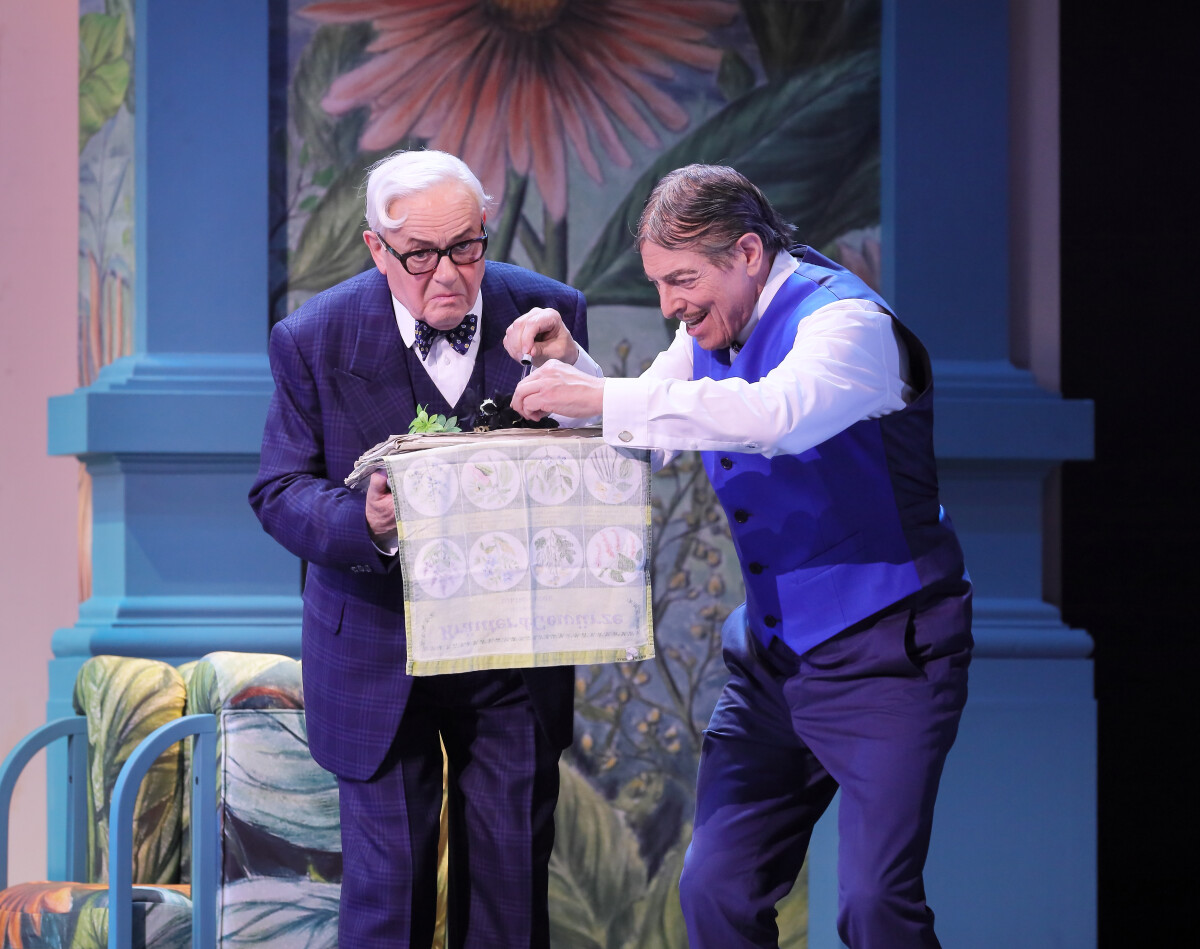
Robert Meyer (Christof Heffele), and Erwin Windegger (Sebastian) in “Waldmeister” in Munich. (Photo: Marie-Laure Briane)
Authority figures are also involved. The morally strict local magistrate Heffele and his hobby-botanist wife Malvine participate. Their daughter Freda, promised to the aging director, falls in love with the dashing Botho. In supporting roles, the caretaker Martin, Pauline’s secretary Jeanne, councilor Danner, and the forestry student Erich navigate the absurd comedy of errors. In the second act, Linden blossom tea is replaced by “Waldmeister Bowle,” and—surprise, surprise—the third act unites the lovers in carefree libertine style.
“Trust with caution, little friend”
Karin Bohnert, the Gärtnerplatztheater’s dramaturg, sums up the operetta’s essence in the booklet: “The young lovers fighting for their love join forces with two free spirits, Pauline the stage artist and Professor Erasmus Friedrich Müller, who stand outside bourgeois society by profession and attitude. Together, they rebel against petty conventions: against hypocritical morality, against stifling narrow-mindedness, and against arranged pairings that lack love.” The finale conveys the general moral: “Trust with caution, little friend,” to which all join in a waltzing chorus.
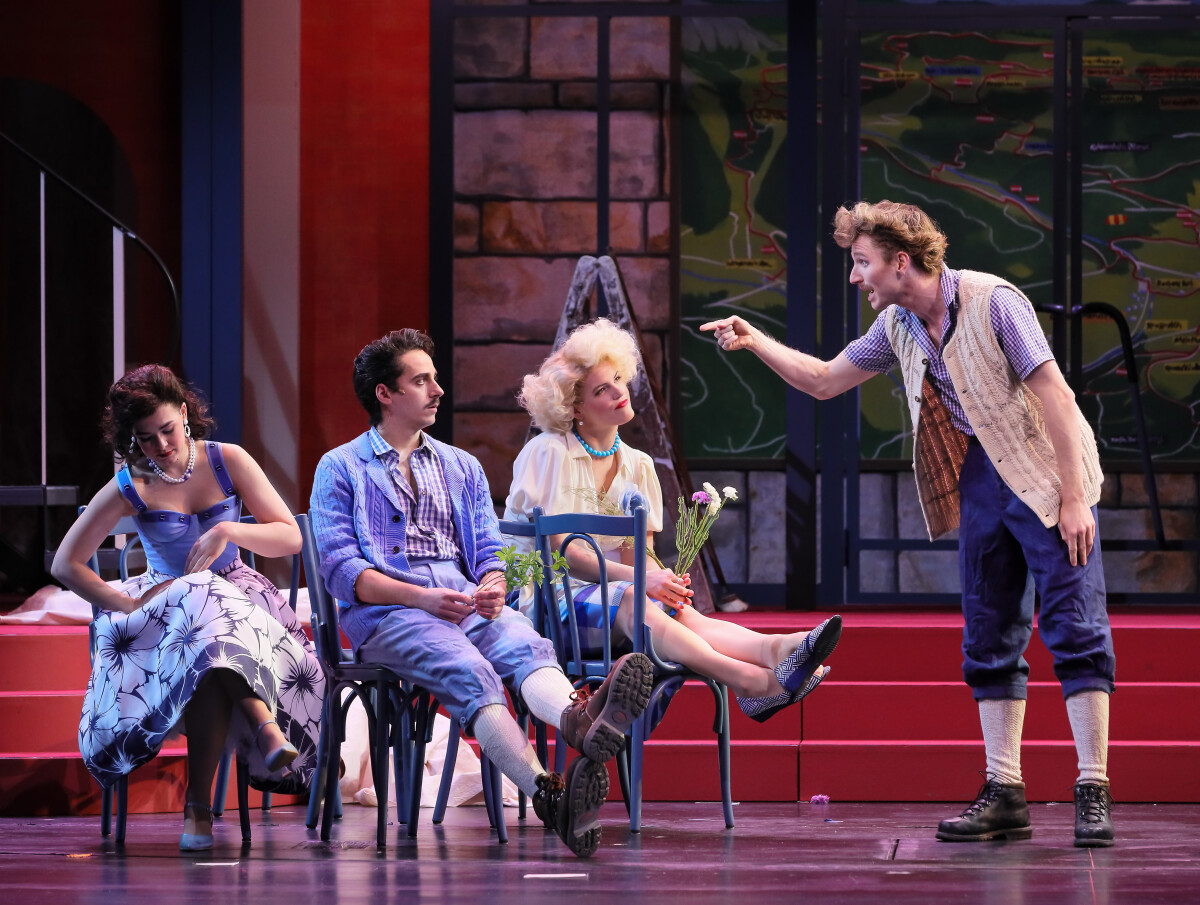
Sophia Keiler (Pauline Garlandt), Matteo Ivan Rašić (Botho von Wendt), Riccarda Schönerstedt (Regina), and Alexander Findewirth (Erich) in “Waldmeister” in Munich. (Photo: Marie-Laure Briane)
The live recording released by cpo largely omits spoken dialogue, perhaps reflecting a belief that text is unimportant in operetta. In a brisk 75 minutes, the complete music unfolds, from the lively overture through more or less appealing lyrical numbers (“Im Walde, wo die Buchen rauschen”) and “philosophical” couplets (“Mein Leben ist ein Irrtum”) to numerous ensembles (duets, trios, even a nonet) and two major act finales. Right after the overture, a notably vivid orchestral thunderstorm, complete with horns, makes its presence felt (“Himmel so ein Wetter!”).
Comedic prowess
Vocal performances are “not always up to expected standards,” writes the reviewer of Online Merker. According to him, Sophia Keiler as Pauline disappoints with inconsistent pitch and fragile high notes. Robert Meyer, known for his comedic prowess, convincingly plays the magistrate, while Regina Schörg, once a celebrated soprano from Mozart to Verdi, can now only draw on past vocal glory. As characters, both remain compelling.
Particularly impressive, however, are Croatian tenor Matteo Ivan Rašić as the dramatically confident Botho; Anna-Katharina Tonauer as Pauline’s secretary Jeanne, with her rich mezzo; and tenor Daniel Prohaska, appointed Kammersänger in 2023 and Köpplinger’s husband, as the clever Erasmus Friedrich Müller. Above all, Slovenian soprano Andreja Zidaric shines as local heiress Freda with a luminous lyrical voice.
Michael Brandstätter conducts the choir and orchestra of the Staatstheater am Gärtnerplatz with energy and atmospheric richness, displaying a golden touch for waltzes, precise rubato, and playful highlighting of orchestral nuances. He is more successful in this than Dario Salvi on the rival Naxos set.
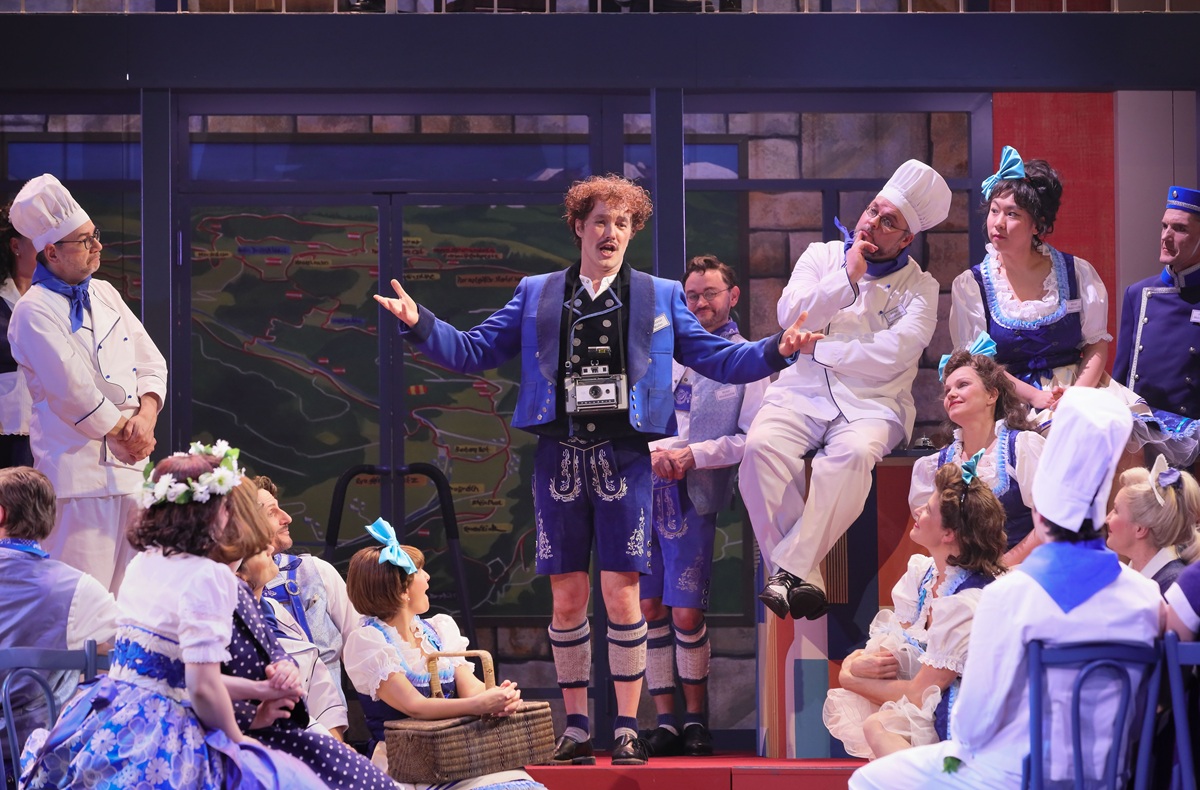
Daniel Prohaska with the chorus and ensemble of Gätnerplatztheater Munich in “Waldmeister”. (Photo: Marie-Laure Briane)
In summary, one could quote from the piece itself: “Herrjemine, Herrjemine, das tut man nicht aus Liebe!” It’s not a recording that makes you want to rush to Munich to see the production – or necessarily delve into a deeper exploration of the operetta Waldmeister. That’s a shame, because a modern day performance on CD, put out there for all the world to hear, should give more impulses. And stir more interest. Still, it’s nice to have two rivalling versions on disc today. Makes for interesting comparisons.

The Dario Salvi recording of “Waldmeister” on 2 CDs. (Photo: Naxos)
